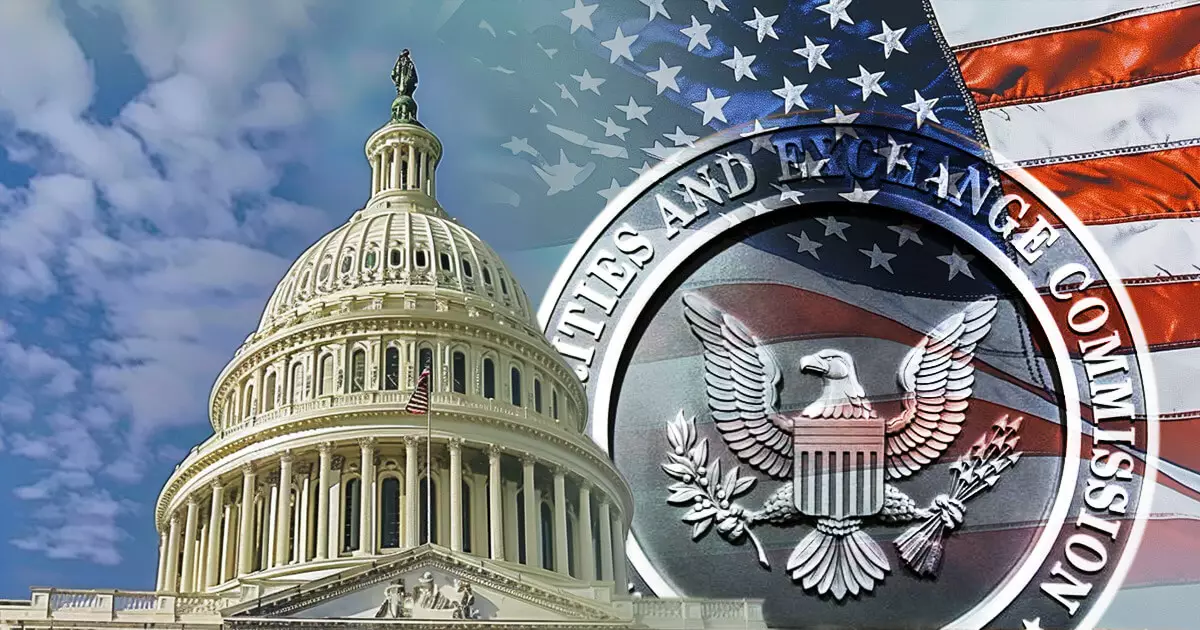The landscape of cryptocurrency regulation in the United States is fraught with challenges, a reality starkly highlighted during the recent Congressional hearing involving SEC Chair Gary Gensler. The session reflected lawmakers’ frustrations with the SEC’s regulatory approach, particularly its apparent reluctance to provide clear guidelines for the burgeoning digital asset market. The absence of digital asset discussions in Gensler’s written testimony further intensifies debates around the current regulatory framework, putting a spotlight on critical shortcomings and diverging perspectives among stakeholders.
At the heart of the hearing was the issue of clarity—or the lack thereof—surrounding the SEC’s regulatory framework for cryptocurrencies. House Financial Services Committee Chairman Patrick McHenry criticized Gensler’s absence of specific guidelines, arguing that it contributes to a climate of “regulation by enforcement.” The FIT 21 Act, recently passed by the House, seeks to establish precise rules aimed at consumer protection in the digital asset space. This legislation reflects a significant bipartisan effort, underscoring a growing consensus among lawmakers that clarity is necessary for fostering a healthy digital asset environment. McHenry articulated that over two-thirds of the House, with substantial support from both parties, rejected the SEC’s vague stance in favor of comprehensive consumer safeguards.
Concerns were raised about the proposed parameters for decentralization defined in the FIT 21 Act. Legislators expressed apprehension regarding the implications of a 20% ownership threshold and enabling anonymous self-hosted wallets. Critics argue these provisions could severely undermine regulatory oversight, raising questions about effective enforcement. The hearing showcased a clear divide, where some lawmakers pushed for reform while others defended existing structures, further complicating the discourse surrounding digital asset regulation.
The Ineffectiveness of ‘Regulation by Enforcement’
Another pivotal topic of discussion was the SEC’s reliance on enforcement actions as a primary means of regulation. Commissioner Hester Peirce asserted that without clear guidance, the agency’s enforcement-heavy approach hampers its effectiveness and ultimately fails to protect investors. She expressed dissatisfaction with the SEC’s current strategy, labeling it as “inefficient” for an industry seeking direction and clarity on compliance expectations. Such statements were echoed by Commissioner Mark Uyeda, who urged the SEC to clarify how traditional securities laws, like the Howey Test, apply within the context of digital assets. Uyeda contended that the SEC should leverage its authority to provide much-needed guidance rather than operating primarily through punitive measures.
Despite the evident critiques, Gensler maintained that existing securities laws are comprehensive enough to oversee the digital asset market. He argued that fundamentally, the tokenization of securities—regardless of where they are stored—does not change the intrinsic characteristics that classify them as securities. Gensler’s position indicates a persistent belief within the SEC that the current legislative framework can adapt to the evolving landscape of digital finance.
The conversation also veered into the ramifications of celebrity endorsements in the crypto space. Representative Bill Foster highlighted concerns over “pump and dump” schemes provoked by influencers who promote investments without transparency regarding their compensation. Gensler’s response pointed to existing laws that could counter such issues; however, he acknowledged that the challenge lies within the agency’s resource constraints against the sheer volume of tips and complaints they receive. This exchange underscored a broader issue in regulatory efficacy—how to adapt to a fast-paced market heavily influenced by social media and celebrity endorsements.
Acall for Comprehensive Reform
The hearing encapsulated the broader tension between the SEC’s current regulatory posture and the urgent need for comprehensive reform. As stakeholders in the crypto ecosystem call for clearer rules and consumer safeguards, the SEC’s ambiguous strategies leave significant uncertainty in their wake. Lawmakers and industry participants alike stress the importance of establishing a regulatory framework that not only fosters innovation but also protects investor interests. With the digital asset market evolving rapidly, the ability of regulators to keep pace while maintaining clarity and transparency becomes increasingly critical in shaping a sustainable future for cryptocurrency in the United States.
The complexities surrounding cryptocurrency regulation are emblematic of broader challenges within the financial regulatory landscape. As discussions continue, the need for collaboration between regulators, lawmakers, and industry stakeholders will be crucial in crafting an environment that is both innovative and secure for investors.



















Leave a Reply